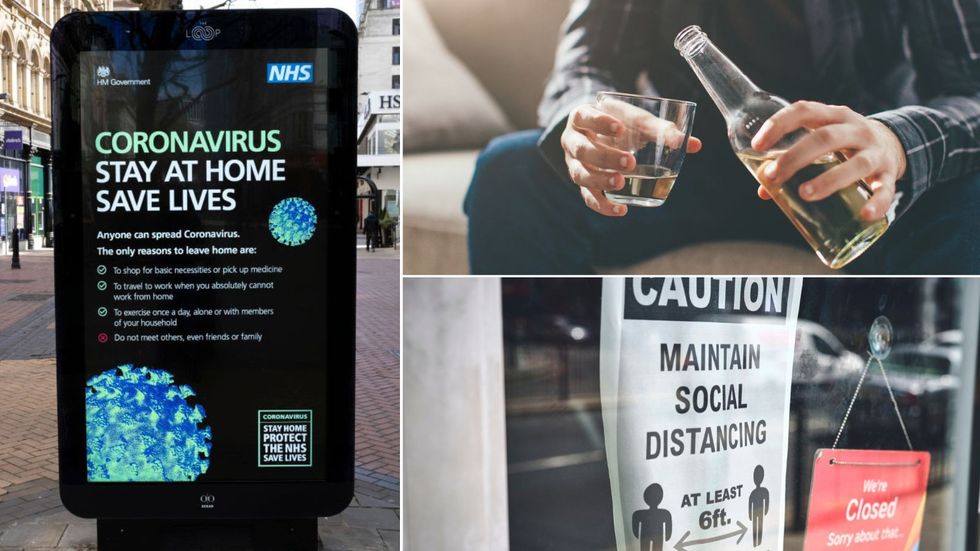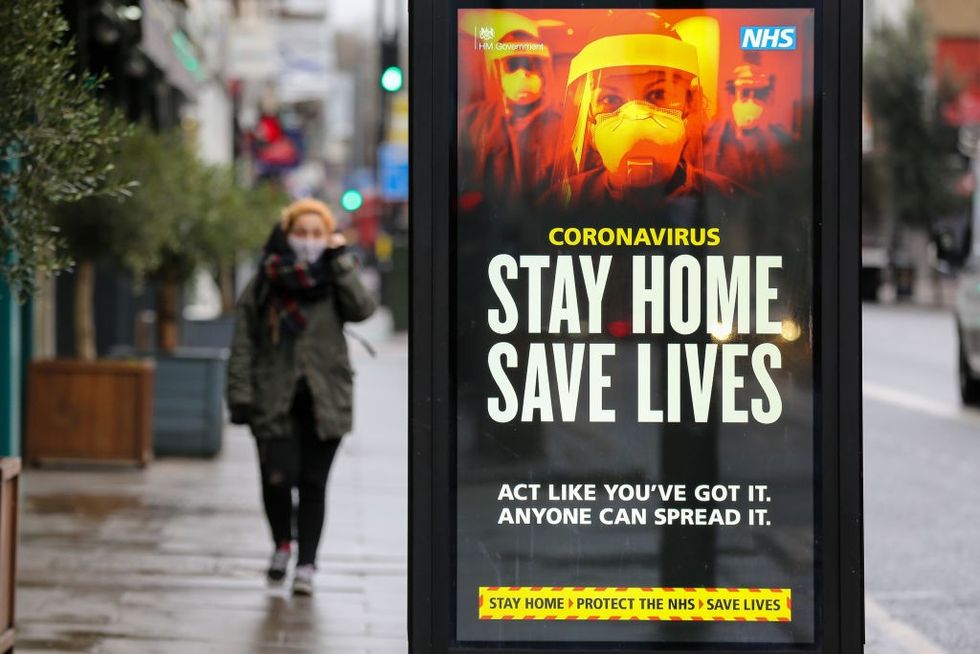WATCH: Paul Richards wades into the Covid scandal that has struck Keir Starmer
GB News
The figures have been linked to isolation, financial stress, depression and anxiety
Don't Miss
Most Read
Trending on GB News
Thousands more people have ‘drunk themselves to death’ since the Covid lockdowns, according to new data described by specialists as an “acute crisis.”
Described by some experts as “deaths of despair,” the figures have been linked to isolation, financial stress, depression and anxiety experienced by many during the pandemic and associated lockdowns.
The research shows that between 2020 and 2023 there were nearly 4,000 additional—or ‘excess’—deaths directly caused by alcohol, compared to pre-pandemic trends. This brought the total in 2023 to 8,276 alcohol-specific deaths, a percentage increase of over 40.
The study, based on Office for National Statistics (ONS) data, is believed to be an underestimate, as it only includes deaths wholly attributable to alcohol. It excludes deaths partially caused by alcohol, such as alcohol-related cancers or road traffic accidents.

Thousands more people have ‘drunk themselves to death’ since the Covid lockdowns, according to new data described by specialists as an 'acute crisis'
Getty
Experts say the study, published in Lancet Public Health, has thrown a spotlight on the “collateral fallout of lockdown measures” now emerging in the data.
Lead author Dr Melissa Oldham, from University College London’s Institute of Epidemiology and Health Care, said: “The sharp increase in alcohol deaths during the pandemic was no flash in the pan. The higher rate has persisted - and is getting worse each year.”
Professor Carl Heneghan, Director of Oxford University’s Centre for Evidence-Based Medicine, said: “This is another collateral implication of lockdown, and we are only now starting to learn the true cost of locking people up and scaring them to death - intensifying their financial worries and isolating them from each other.”
Professor Sir Ian Gilmore, Chair of the Alcohol Health Alliance, added: “A 40 per cent rise in deaths from any other disease would be on the front pages of every newspaper. But alcohol fails to make the headlines. The government needs to produce a strategy to reduce this unacceptable burden of harm and improve the country’s woefully inadequate treatment services.”
Zaheen Ahmed, Director of Addiction Therapy at alcohol treatment experts The UKAT Group, said: “Finally, a study that paints the real picture of the problem this country has developed with alcohol post-pandemic. It clearly proves that, in order to cope with the Covid crisis, we drank and drank and drank—until our bodies couldn't take any more. These people literally drank themselves to death as a direct result of the multiple lockdowns.
“Our concern now, however, is that people may have developed a high tolerance to alcohol and therefore have to consume more to feel the effects - yet they haven’t admitted a problem.”
LATEST DEVELOPMENTS:
The figures come alongside Department for Education data suggesting that the Covid-era lockdowns also pushed thousands of the most vulnerable children to the brink.
This data, analysed by addiction treatment experts at UKAT, shows that collectively, drug misuse and mental health concerns for children in care have risen by a staggering 30 percent since the lockdowns.
According to UKAT, in 2019 - before the pandemic - social workers logged 85,540 reports of drug misuse or mental health concerns involving children in the social care system.
That figure has since risen by 30 percent in just five years, reaching 111,450 such reports last year.
The analysis highlights that anxiety, depression, and other mental health disorders are among the most rapidly growing concerns, with mental health issues for children in care increasing by 40 per cent since the pandemic began.
These figures are based on reports from social workers assessing children in need of care.
 A scientist has admitted that the first Covid lockdown was expected to cause economic misery and hit the poorest in the UK in a study published just days before the lockdown was announcedDinendra Haria/SOPA Images/LightRocket via Getty Images
A scientist has admitted that the first Covid lockdown was expected to cause economic misery and hit the poorest in the UK in a study published just days before the lockdown was announcedDinendra Haria/SOPA Images/LightRocket via Getty ImagesProf Heneghan, who has analysed many the collateral harms of lockdown on the Substack Trust the Evidence, added: “This is a time for sombre reflection. We must properly weigh up the costs and benefits of any future public health measures.
"Lockdowns had the most devastating effects on the most vulnerable in our society including children - crucially, in the future we must put children first in all decision-making.”
Zaheen Ahmed of UKAT added: “Mental health services were already under pressure before Covid, but the pandemic made the situation far worse. The current system simply can’t cope with the demand for help. What we need now is urgent investment in mental health services for these children.”
He continued: “We’re seeing a worrying trend. While mental health concerns are growing, so are the risks associated with substance misuse. The long-term effects of these issues could be devastating—for the children affected and for the wider community.”
The Department of Health was approached for comment.







